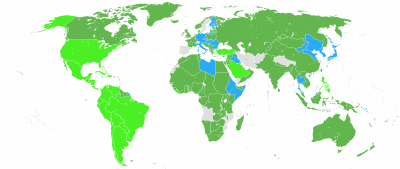Operation Market Garden was an Allied military operation during the Second World War fought in the Netherlands from 17 to 27 September 1944. Its objective was to create a 64 mi (103 km) salient into German territory with a bridgehead over the River Rhine, creating an Allied invasion route into northern Germany. This was to be achieved by two sub-operations: Seizing nine bridges with combined U.S. and British airborne forces (Market) followed by land forces swiftly following over the bridges (Garden).
The airborne operation was planned and undertaken by the First Allied Airborne Army with the land operation by XXX Corps of the British Second Army. Although the largest airborne operation of the war up to that point, Market Garden's ultimate outcome remains debated: The operation succeeded in liberating the Dutch cities of Eindhoven and Nijmegen along with many towns, and limited V-2 rocket launching sites. However, it failed to secure a bridgehead over the Rhine, with the advance being halted at the river.
The Allies, later known formally as the United Nations, were an international military coalition formed during the Second World War (1939–1945) to oppose the Axis powers, led by Nazi Germany, Imperial Japan, and Fascist Italy. Its principal members by 1941 were the United Kingdom, United States, Soviet Union, and China.
Membership in the Allies varied during the course of the war. When the conflict broke out on 1 September 1939, the Allied coalition consisted of the United Kingdom, France, and Poland, as well as their respective dependencies, such as British India. They were soon joined by the independent dominions of the British Commonwealth: Canada, Australia, New Zealand and South Africa. Consequently, the initial alliance largely resembled that of the First World War.
As Axis forces began invading northern Europe and the Balkans, the Allies added the Netherlands, Belgium, Norway, Greece, and Yugoslavia. The Soviet Union, which initially had a nonaggression pact with Germany and participated in its invasion of Poland, joined the Allies in June 1941 after Operation Barbarossa. The United States, while providing some materiel support to European Allies since September 1940, remained formally neutral until the Japanese bombing of Pearl Harbor in December 1941, after which it declared war and officially joined the Allies. China had already been at war with Japan since 1937, but formally joined the Allies in December 1941.
The Allies were led by the so-called "Big Three"—the United Kingdom, the Soviet Union, and the United States—which were the principal contributors of manpower, resources, and strategy, each playing a key role in achieving victory. A series of conferences between Allied leaders, diplomats, and military officials gradually shaped the makeup of the alliance, the direction of the war, and ultimately the postwar international order. Relations between the United Kingdom and the United States were especially close, with their bilateral Atlantic Charter forming the groundwork of the alliance.
The Allies became a formalized group upon the Declaration by United Nations on 1 January 1942, which was signed by 26 nations around the world; these ranged from small nations far removed from the war, to governments in exile from the Axis occupation. The Declaration officially recognized the Big Three and China as the "Four Powers", acknowledging their central role in prosecuting the war; they were also referred to as the "trusteeship of the powerful", and later as the "Four Policemen" of the United Nations. Many more countries joined through to the final days of the war, including colonies and former Axis nations.
After the war ended, the Allies, and the Declaration that bound them, would become the basis of the modern United Nations; one enduring legacy of the alliance is the permanent membership of the U.N. Security Council, which is made up exclusively of the principal Allied powers that won the war.

1944Sep, 17
World War II: Allied Airborne troops parachute into the Netherlands as the "Market" half of Operation Market Garden.
Choose Another Date
Events on 1944
- 10Apr
Auschwitz concentration camp
Rudolf Vrba and Alfréd Wetzler escape from Birkenau death camp. - 13Apr
Soviet Union
Diplomatic relations between New Zealand and the Soviet Union are established. - 26Jun
RAF
World War II: San Marino, a neutral state, is mistakenly bombed by the RAF based on faulty information, leading to 35 civilian deaths. - 26Aug
Charles de Gaulle
World War II: Charles de Gaulle enters Paris. - 31Dec
Nazi Germany
World War II: Hungary declares war on Nazi Germany.

 English
English  español
español  français
français  português
português  русский
русский  العربية
العربية  简体中文
简体中文 